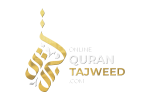The Holy Book is Allah Almighty’s source of mercy and is the foundation of Religion. It establishes a comprehensive living ethically and keeps an eye on Muslim everyday routine. It has a blend of ideas from various Holy writings and is a legal need to comprehend it accurately. It is to the final Prophet Muhammad (SAWW). The fundamental study of the Holy Quran is at the Online Quran Academy. It has all of the qualities and features of studying the Sacred Text. Religion’s dominant point and the subject to accept direction from its beliefs. Guarantee a better life for yourself. You trust in the sovereignty of Allah and Prophet Hood’s authority. Surrender yourself to Allah Almighty’s decision. Nothing can occur without His approval, according to this faith. When you adopt the fundamental teachings of Islam, you will achieve success.
What does Prayer mean?
The five regular worship intervals are among the most significant Shariah laws for Believers. The loyal are reminded of Lord and the possibilities to ask His direction and pardon through repentance. They also serve as a lesson of the worldwide bond that Muslim people have in their beliefs and customs.
What are ways to pray?
Believers of different religions must perform certain practices as part of their regular worship. They must be mentally and physically pure before it. Before reciting, People are by Shariah principles to perform traditional cleansing of the palms, foot, arms, and legs, known as Wudhu. Devotees must also wear decent, humble attire. After you’ve finished the Wudhu, you’ll need to locate a spot to sit. Mosques are among Muslim people because they communicate and share their faith. However, anyone can meditate in any private corner. It includes a section of a workplace or a residence. The only requirement is that the blessing is said while confronting Mecca, the Prophet Muhammad’s homeland.
Different Rituals of Prayer:
Offerings are customarily said while kneeling on a prayer mat. The sermons are usually spoken in Arabic, while a sequence of ritualized postures and actions is known as Rakha praising Almighty and professing commitment. They are the following:
Takbeer:
True believers rise and say Allahu Akbar with their extended palms raised to chest level by saying God is great.
Qiyaam:
Cross their right arm over their leftover torso or belly while remaining upright. The first sections of the Book, as well as other salutations, are recited.
Ruku:
Followers bend in front of Makkah, place their palms on their knees, recite three times, and say Praise is to Allah, the magnificent.
Qiyaam No. 2:
The believers get up and place their arms at their sides. God’s splendor is once more exalted.
Sujud:
Only the hands, legs, ankles, forehead, and nose meet the earth while believers bow. Three times the phrase is uttered Greatness is to Allah, the Almighty.
Tashahhud:
Step into a sitting position with your feet on the floor and your arms on your laps. It is time to stop and think about your belief.
Sujud:
It is said again.
Tashahhud:
It appears again. The devoted lift right pointer finger momentarily. It is to show commitment after saying a prayer to Lord. Believers also ask for repentance and kindness from the Almighty.
Benefits of Praying:
They are the following:
It reminds us of our Lord:
“Only in the memorization of Lord Do souls find rest,” our glorious Creator has told us. That’s because recalling and remembering our most beloved Allah calms our spirits, widens our bodies, and soothes our souls. As a result, it is a priceless blessing from Heaven. Our dear Prophet recognized the importance of this revelation and prayed at every chance. “My delight is in the praying,” he said, expressing the joy and calm he had while praying.
It removes our sins:
Worship is a moment when we connect with our Lord. We know we are praying next to our Creator Of the universe. If we were contemplating doing a crime, we would alter our minds by seeing ourselves kneeling and in front of Him. It would cleanse our souls of wicked thoughts and emotions, as well as other portions of our bodies as our palms and mouths.
It makes our character:
It allows us to recognize our misdoings and faults and ask for Divine intervention for them by saying sorry. We implore our Founder’s pardon through it. We appear next to Him five times a day, aware that He is known for all we do, and we become more conscious of our actions.
It makes us clean:
When we wash our hands before praying, we cleanse the parts of our bodies that get unclean the most in our daily lives. We inspect our bodies, clothing, and the location we worship to ensure that they are all tidy. We wash our hands, faces, and toes by few times a day. We begin the process of staying clean.

